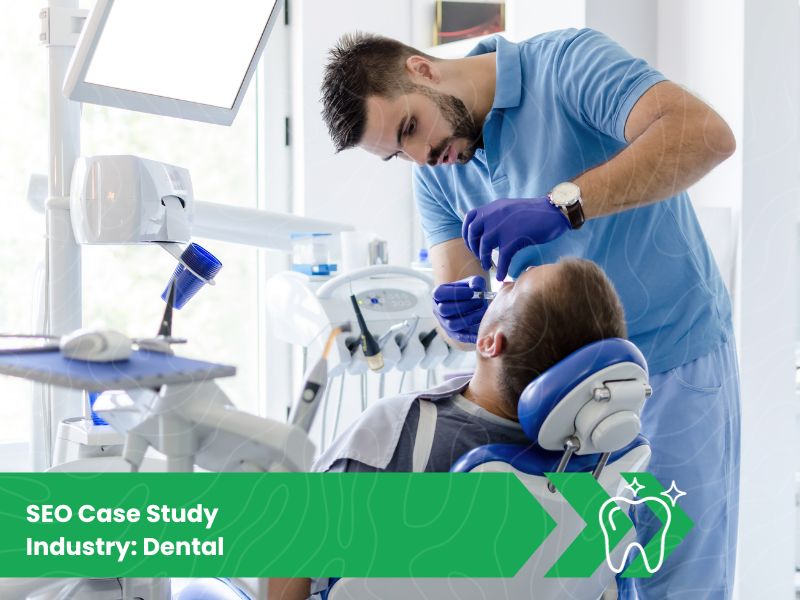Are Blogs Good for SEO? Here’s What You Need to Know
Are blogs good for SEO? Absolutely. Blogs not only help improve search engine rankings, but they also increase organic traffic and visibility. In this article, we’ll delve into the specific ways blogging can enhance your SEO efforts and provide practical tips for optimizing your blog.
Key Takeaways
- Blog SEO involves writing and optimizing content with relevant keywords to improve visibility and search rankings.
- Regularly updated, high-quality blog content is essential for attracting organic traffic and enhancing site authority.
- Effective SEO blogging requires thorough keyword research, optimized on-page elements, and monitoring of technical SEO to maximize performance.

Things to Understand About Blog SEO
Blog SEO is the art and science of writing, optimizing, and publishing blog posts to rank higher in search engines. This process involves using relevant keywords and following best practices to improve your content’s visibility. With search engines being the primary gateway to the internet, understanding and implementing blog SEO is crucial for anyone looking to enhance their online presence.
The benefits of optimizing your blog for SEO are manifold. Not only does it increase your organic traffic, but it also improves your search engine rankings, making your content more discoverable. Tools like Semrush’s On Page SEO Checker can help you cross-check your on-page SEO optimization, ensuring you follow best practices. The ultimate goal is to rank as high as possible in search results, thereby attracting more visitors to your site.
In essence, blog SEO is an ongoing process that requires continuous enhancements. This includes using focus keywords organically in key locations, creating high-quality content, and ensuring that your blog posts align with user interests and search intents. By doing so, you make it easier for search engines like Google to understand and rank your content, which is the cornerstone of effective SEO blogging.
The Importance of Blogging for SEO
Blogging is a critical component of any robust SEO strategy. But keep in mind that it’s not always what needs to be done when you begin SEO. Most people think Blogging = SEO, and that couldn’t be further from the truth. Most of the time, SEO starts with taking a birds eye view of the site, then identifying what is working and what isn’t, eliminating and optimizing the content that is currently there, and then building the content and blogging SEO strategy. Blogging doesn’t just improve your search engine rankings but also showcases your expertise in your industry. Blogs effectively use SEO keywords, which can significantly boost a website’s visibility. By addressing various search intents, blogs can drive organic traffic, catering to both informational and transactional needs.
The benefits extend beyond just attracting visitors; effective blogging can also convert these visitors into customers, enhancing your reach and driving sales. Tracking organic traffic growth and engagement metrics can help gauge the effectiveness of your blogging efforts, ultimately offering a positive return on investment.
Blogging is an indispensable tool in the SEO arsenal, facilitating higher search engine rankings and helping achieve business goals.
How Blogs Improve SEO
Blogs are more than just a platform to share your thoughts; they are a powerful tool for improving SEO. High-quality blog content aligns with user interests and can lead to better rankings in search results. Creating relevant content that addresses various search intents enhances visibility and attracts organic traffic.
Specific ways blogs improve SEO include the importance of fresh content.
1.) Fresh Content Signals Relevance
Search engines prioritize fresh content, making regular blog updates crucial for maintaining visibility in search results. When you consistently add fresh content to your blog, it signals to search engines that your site is active and relevant. This encourages frequent indexing by search engines, which can lead to higher rankings and more traffic.
Moreover, regularly updated blog content keeps your audience engaged, providing them with new and valuable information. This not only enhances your site’s relevance but also helps in building a loyal readership. In the long run, fresh content can lead to more leads and traffic from other channels, further boosting your site’s performance.
2.) Targeting Relevant Keywords
Keywords are a cornerstone of any successful SEO strategy. Blogs are ideal for incorporating popular keywords, enhancing their relevance. Through keyword research, you can identify relevant keywords that align with your target audience’s search intents. Tools like Google Keyword Planner and other keyword research tools can help you find these keywords, enabling you to create content that meets user needs.
Blogging allows for the integration of long-tail keywords, which are often less competitive and can attract targeted traffic. Focusing on specific questions and delivering comprehensive answers makes your blog content more relevant to users and search engines alike. This makes it easier for your content to rank higher on search engine results pages, driving more organic traffic to your site.
3.) Enhancing Internal Linking Structure
Internal linking is a key strategy in SEO that helps search engines understand the structure of your site. By creating internal links within your blog posts, you improve site navigation and make it easier for visitors to find related content. This not only enhances the user experience but also helps search engines index your site more effectively.
Additionally, a strong internal linking structure can boost the overall SEO performance of your site. It distributes link equity throughout your site, helping individual pages rank higher in search results. By strategically using internal links, you can guide search engines and users to the most important pages on your site, improving your overall SEO strategy.
4.) Generating Backlinks
High-quality blog posts are more likely to receive backlinks from authoritative sites, which are crucial for SEO. Backlinks signal to search engines that your content is credible and valuable, enhancing your site’s authority. This can significantly impact your search engine rankings, making it easier for your content to be discovered.
Effective backlink generation improves SEO rankings and increases referral traffic. Creating valuable and engaging content attracts other sites to link to your blog, further boosting your link-building efforts. (if anyone trys to sell you on buying backlinks, laugh at them, and ignore them, th
In essence, generating backlinks is a vital aspect of any successful SEO strategy, and blogs are a powerful tool for achieving this.
Common Misconceptions About Blog SEO
Despite the clear benefits of blogging for SEO, several misconceptions persist. Many believe that writing alone guarantees good SEO performance, neglecting the importance of proper optimization. Addressing these misconceptions highlights the reality of effective blog SEO.
Writing Alone Isn’t Enough
It’s a common misconception that simply writing content will lead to good search engine optimization. The bad news is that well-written content alone isn’t enough.
Effective blogging requires a combination of writing, optimizing, and promoting your content to achieve the desired SEO results.
Over 200 Ranking Factors
SEO is a complex field influenced by over 208 different factors. These factors go beyond just blogging practices, encompassing various elements like site speed, mobile-friendliness, and user experience. Understanding the variety of these ranking factors is essential for devising effective SEO and blogging strategies.
A comprehensive grasp of these factors can significantly enhance your blog’s performance in search engine results. By considering all aspects of SEO, you can ensure that your blog content not only ranks higher but also drives more organic traffic to your site.
Blogs Are Not Only About Generating Traffic
Many people think if Blogs aren’t generating traffic, then they are not benefitting their SEO. This couldn’t be further from the truth. Google rewards great content in other ways too! When Google put out its helpful content update, it aimed to reward sites that have built great topical authority. Topical authority is a measure of a website’s perceived authority and expertise in a particular niche or topic. The more relevant topic and content you build around your industry the more Google sees your website as a relevant and topical authority, which in turn helps with overall ranking higher for your focus keywords.

Best Practices for Optimizing Blog Posts for SEO
Optimizing blog posts for SEO involves more than just writing good content. It requires thorough keyword research, optimizing on-page elements, improving readability and engagement, and monitoring technical SEO.
Let’s dive into these best practices to help you create SEO-friendly blog posts.
1.) Conduct Thorough Keyword Research
Identifying the right keywords is crucial for targeting your audience effectively. Each blog post should focus on a primary long-tail keyword. This keyword should consist of three words or more. Using tools like Semrush’s Keyword Magic Tool can help you find topics people are searching for and target keywords with lower competition by setting the KD filter to ‘Easy’.
Conducting thorough keyword research ensures that your content aligns with what your audience is searching for. This not only improves your chances of ranking higher in search results but also makes your content more relevant and engaging for your readers.
2.) Optimize On-Page Elements
On-page SEO elements like meta descriptions, headers, and alt text are crucial for improving search engine rankings and user experience. Using headings effectively helps search engines and readers navigate the blog structure more easily. Additionally, optimizing these elements ensures that your content is properly indexed by search engines, increasing its visibility. What does optimizing mean you might ask? Optimize essentially means to add focus keywords within the on-page elements.
By focusing on on-page SEO, you can enhance the overall performance of your blog and drive more organic traffic to your site.
3.) Improve Readability and Engagement
Content should be organized to improve user experience, making it more enjoyable and easier to digest. Well-structured content enhances user experience, leading to better engagement with the blog post. Click-through rates can improve with compelling and relevant blog titles.
Incorporating organized content and engaging titles significantly boosts blog readability and user engagement. This not only helps in retaining readers but also improves your blog’s overall performance in search engine rankings.
4.) Monitor Technical SEO
Regularly checking for technical SEO issues like site speed is essential for maintaining blog performance. Tools like Semrush’s Site Audit can help monitor and fix technical SEO issues that may hinder your blog’s performance.
Keeping an eye on technical aspects ensures that your blog is always optimized for search engines. This not only improves your site’s performance but also enhances the user experience, making it easier for your audience to access and engage with your content.
5.) Utilize Tools Like Google Trends to Identify Trending Topics
One practice many people don’t utilize is identifying whats being searched online, then building content around it. There is strategy involved in this, you cant just write off the wall content unrelated to your industry. Google will penalize that type of content, I go into in-depth detail about this in my case study of Lowcountry Crawlspaces. You need to find a way to be creative and build relevant content around these topics.
One of Our Local SEO Success Stories:
Before we dive into the good stuff (Yeah, it gets better), let me tell you about Car Keys To Go, an awesome car key replacement company located all around South Carolina. This local business was struggling to get people to find them online. After our discovery call, I got to work. There was a lot of work to be done but we started with a complete rebuild from the ground up of the website. Their original website was on WIX (Which is known for its issues with SEO and Google crawling them) and they were only receiving about 15 leads each month coming in from their website, with no idea of how those leads were coming in. We rebuilt the website, set up tracking with analytics, and began pushing local SEO to their target locations.
We initiated our SEO campaign with six carefully selected focus keywords for each location. Criteria for selection included overall search volume, keyword difficulty, and alignment with the search intent of those seeking immediate service. The keywords included Car Key Replacement, Key Remote Replacement, Smart Key Replacement, Key Programming, Car Remote Replacement, and Replacement Car Key.
At the outset, their highest-ranked keyword, “Key Remote Replacement,” resided at position 18 on Google’s search results (Page 2). The table below illustrates the initial positions for their focus keywords and the significant progress achieved since then. Feel free to verify their current rankings by searching “Car Key Replacement Rock Hill” or click here for a direct link to their Google standings. Presently, they hold positions 2-3 on Google, a remarkable leap from their initial placements on pages 2 or 3 for most Rock Hill keywords. Every single one of their Rock Hill keywords now resides at the top of the coveted Page 1 on Google.
Over the last 10 years, I've had the privilege of collaborating with over 100 small businesses, creating their websites, and developing SEO strategies that deliver substantial results. Presented below are a few examples of the clients I've had the pleasure of working with, along with the remarkable growth they've achieved throughout our partnership. As time permits, I'll keep expanding this portfolio, and if you have any specific inquiries about the specific industries regarding SEO & Website Design, please don't hesitate to get in touch. Chances are, I've also worked within that particular industry and can provide valuable insights and more importantly, results.
SEO Strategies Developed & Implemented
Featured SEO Case Studies
More Case Studies Coming soon!

Cory Towler
About the Author
About Cory Towler
Hey there! I’m Cory Towler, the founder of Offset Digital, a small but mighty SEO and web design company based right here in North Charleston. As a SEMrush Certified Agency Partner, I’m equipped with the latest tools and expertise to help your business thrive online.
Why Offset Digital? Because Your Success is My Success
I started Offset Digital with a clear mission: to help small businesses like yours thrive online. After years in the industry, I saw too many small businesses get overlooked by big agencies with high price tags and impersonal service. That’s not how I do business.
At Offset Digital, we’re all about building real relationships. I want to be your partner, not just another vendor. I’m passionate about transparent, quality work that fits your budget and delivers real results. When you succeed, I succeed – that’s the philosophy behind our motto: “My Business Only Grows, When Yours Does.“

My Background: From Agency Life to Small Business Owner
Thanks to my dual major at Charleston Southern University and my experience as Creative & Art Director at Jeff Cook Real Estate, I’ve got a solid foundation in marketing and design. I’ve also honed my SEO skills at MediaBeast Marketing, working with some of Charleston’s top brands.
However, my real education came from working within the marketing industry for the last 12 years with countless small business owners. I understand your challenges, goals, and need for a partner who truly understands it. That’s why I’m here.
Let’s Grow Together!
Whether you’re looking for SEO expertise, a stunning new website, or just some friendly advice, I’m here to help. Check out our case studies to see the impact we’ve made for other businesses, and reach out anytime to start the conversation.
When I’m not geeking out over SEO, you can find me gaming, backpacking, or enjoying way too many Monster Zeros. Oh, and I’m also married to the most amazing woman on the planet.
Blog SEO FAQs

How often should I update my blog to improve SEO?
To boost your SEO, try to update your blog at least once a week. This keeps your content fresh and signals to search engines that your site is active and relevant.
Can I use the same keywords in multiple blog posts?
Absolutely, you can use the same keywords in multiple blog posts, but make sure each post focuses on a different angle to keep things fresh and avoid competing with yourself. This way, you enhance your site’s relevance without running into content issues.
What are some effective tools for keyword research?
To nail your keyword research, try using Google Keyword Planner and Semrush’s Keyword Magic Tool. These tools can help you uncover what your audience is really looking for.
Why is internal linking important for SEO?
Internal linking is crucial for SEO because it aids search engines in understanding your site’s structure and enhances user navigation. Plus, it helps distribute link equity, boosting the rankings of individual pages in search results.
How can I measure the success of my blogging efforts?
To measure your blogging success, dive into Google Analytics and Search Console to track user behavior and content performance. These tools will give you clear insights into your blog’s impact and where you can improve.
Ready to Begin?
Fill out the form below and I'll get right to work.







